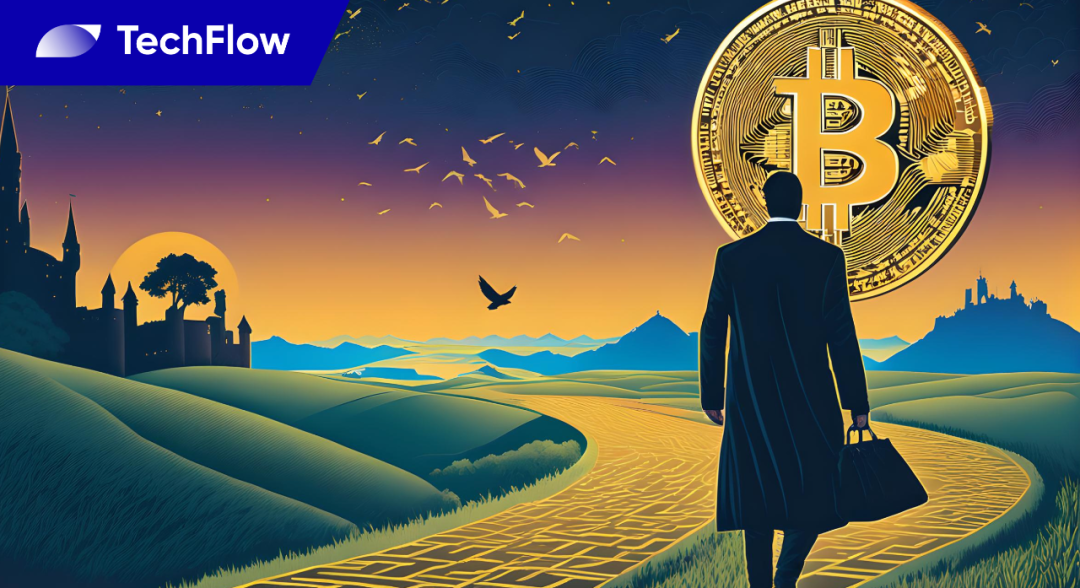President of the Beijing Internet Court: Black technology such as "Tianping Chain" provides advanced experience for the blockchain system of the court system
Source: Daily Economic News , the original title "Every Interview with the President of the Beijing Internet Court, Zhang Wen:" Tianping Chain "Evidence Blockchain and Other Black Technologies, Provide Prior Experience for the Court System Blockchain Application"
Every reporter Liu Yongsheng Every editor Yi Qijiang
Beijing Internet Court, as one of the three Internet courts in China, has been in existence for more than a year, and has achieved remarkable results in judicial application of advanced technologies and tools such as the Internet, big data, and blockchain. During this outbreak, the advantages of the Beijing Internet Court were further amplified, providing parties with convenient and efficient litigation channels.
The birth origin and development status of Beihu (abbreviated to Beijing Internet Court) are divided into several stages? In the practice of advanced technology, what are the difficulties encountered by Beihu and how are they resolved? What are the advantages of Internet courts over traditional courts? What is Beihu's next development plan? In the current anti-epidemic situation, has Beihu been affected? In response, a reporter from "Daily Economic News" (hereinafter referred to as "NBD") interviewed Zhang Wen, president of the Beijing Internet Court.
- What kind of blockchain project is worth investing in? Graph Network Data Tells You | Babbitt Industry Lesson
- Viewpoint | Ethereum 2.0 inspired by the Ethereum 1.0 upgrade
- Perspectives | Numerous entrepreneurial opportunities can be found through blockchain in the next decade

Photo of Zhang Wen: Photo courtesy of the interviewee
The "black technology" of the Beijing Internet Court is remarkable
NBD: The origin and development of Beihu are divided into several stages?
Zhang Wen: Since the development of the Beijing Internet Court, it can actually be described in two words, "touch the stone" and "nail nail".
On July 6, 2018, the third meeting of the Central Committee for Comprehensive and Deepening Reform approved the proposal to add the Beijing Internet Court. On August 16, 2018, the Standing Committee of the 15th People's Congress of Beijing held its sixth meeting and appointed the president, vice president, 37 post judges and 2 judges of the Beijing Internet Court. On September 9, 2018, the Beijing Internet Court was formally established. This is not only a major decision of the Central Committee for Comprehensively Deepening the Reform, but also an epochal requirement for China to implement the strategy of strengthening the country on the Internet, and it is also a strong response from the judicial initiative to adapt to the new needs of the people. At this stage, the Beijing Internet Court can be said to be speeding up the construction of the Internet. The strong support and strong support given to the Internet Court by the Supreme Court, the Municipal Party Committee, the Municipal Government, the Political and Legal Committee of the Municipal Committee, the relevant commissions, the city's court system, and all sectors of society With the help of an ordinary office building in Fengtai Science and Technology Park, it turned into a new era court where intelligence technology and judicial work are deeply integrated. From the beginning to the beginning, the Beijing Internet Court has built the nation ’s first real-world Internet trial experience area that is completely open to the public, allowing visitors to experience the mode and significance of online litigation in depth; creating “open tolerance, platform neutrality, data sharing, and innovation and upgrading "Safe and controllable" full-process integrated electronic litigation platform, bringing offline litigation online; after more than 10 trainings including ideology and politics, network technology, trial business, news public opinion, judicial etiquette, integrity and discipline , To achieve the initial running-in of the trial team and the technical team.
In the first few months, the Beijing Internet Court was built at a high speed while feeling the stones. For more than a year since then, we have completed the reform tasks one by one in a spirit of nails.
The first is to explore Internet litigation rules and advance governance of cyberspace. This is one of the most important tasks undertaken by the Beijing Internet Court as a "test field" and "model room." In terms of procedures, the Beijing Internet Court focuses on centrally administering 11 types of Internet-related cases, builds relevant norms and rules, and unifies adjudication standards and judicial procedures, so as to ensure that the work of the Internet Court is legal and orderly, and the network is tested first. All participants in the space have rules to follow and laws to follow. On the physical side, under the iterative development of Internet technology, within the existing legal framework, the Beijing Internet Court made judicial decisions based on new social conditions, and gradually explored a cyberspace governance that "rules by rules and rules promote governance" the road. On the first anniversary of the establishment of Beihu last September, we commented on many hot Internet cases, all of which are of high social concern and involve new Internet issues. This is the result of Beijing Internet Court's exploration of Internet litigation rules and Internet governance.
Followed by the information construction, the cultivation of high-quality professional talents, the "full-link closed" survey, and one-stop diversified solutions to promote the governance of the rule of law in the Internet space. Informatization construction has always been an important work content of our hospital. During this epidemic, centering on serving the public litigation, serving trial execution, and serving social governance, the Beijing Internet Court's electronic litigation platform, AI virtual judges, and "balance chain" evidence area "Black technology" such as block chain, automatic generation of documents, Taobao micro-tao, mobile micro-court, etc., play an important role as a bridge between judges and parties. The cultivation of high-quality, professional talents is the organizational guarantee for the rule of law on the Internet. Hearing cases in Internet courts is not only a judgment on legal issues, but also a judgment on technical issues. In many cases, judgments on technology are judgments on facts. Therefore, to build a proficiency in trial skills, understand technical characteristics, and insight into industrial development A team of expert judges is necessary to advance the rule of law in cyberspace. Through the establishment of a “full link closed” research mechanism, it will connect with Internet administrative agencies, Internet companies, and Internet research institutions, improve the comprehensive ability of Internet trials, serve the online business environment, and manage cyberspace in accordance with law. Guided by the "Fengqiao Experience" on the innovation development line, we will improve the one-stop multi-disciplinary mechanism, internal and external linkages, and introduce multi-party mediation forces.
NBD: What difficulties did Beihu meet in the practice of advanced technology, and how did it solve it? What experience has been gained?
Zhang Wen: Taking the epidemic as an example, in order to fight the epidemic, we will speed up technological breakthroughs, achieve internal and external network data interaction, and assist judges in their flexible work.
At the beginning of the establishment, due to the consideration of data security and system integration, our court's case handling platform was built on an internal private network, the litigant's litigation end was set up on the Internet, the judges held trials in the court, the parties held trials on the Internet, and real-time interaction between internal and external network data. When the epidemic struck, our institute quickly formed a technical research team to step up the development and construction of auxiliary functions for handling cases on the Internet (extranet), with the premise of ensuring data security, connecting closely with technical departments, and formulating development plans in stages. At present, we have realized the trial function on the Internet. The online trial judge client provides judges with trial trial videos, evidence, cross-examination live broadcasts, trial transcripts, and trial public functions. Different from the general online trial system, this platform is equipped with all case handling functions, and real-time interaction of internal and external network data, which can realize the case trial work at the same time in the internal network and external network environment, and simultaneously complete the live trial of the trial. After that, we will also launch the online filing and review and electronic delivery functions.
What are the advantages of Internet courts?
NBD: What are the advantages of Internet courts over traditional courts?
Zhang Wen : After the epidemic, in order to reduce the flow of people, ensure prevention and control, and take into account the orderly execution of trials, local people's courts have stepped up their exploration of online litigation. It can be said that during the epidemic prevention and control, the advantages of Internet trials were amplified and the Internet trial model was further promoted. The advantages of Internet courts are that we have more practical experience and more innovative explorations. We conducted in-depth research on Internet trials, completed a major research project of the Supreme Court's judicial research in 2018, "Online Trial Methods and Trial Mechanisms," and formed a 100,000-word research report. On February 21, 2020, the Internet Court held an online press conference, and the "Beijing Internet Court's e-litigation trial rules" was one of the research results of the subject. We hope that the practical accumulation, investigation and innovation results of Beijing Internet Court's operation for one year will be promoted to everyone in a reproducible form to form more "Northern Mutual Experience" and provide more "Northern Mutual Wisdom" for epidemic prevention and control. .
NBD: What are the development plans for the Beijing Internet Court?
Zhang Wen: For some time to come, we will provide judicial protection for the development of the Internet economy after the epidemic. Judging from the impact of the epidemic, the industries with a higher degree of intelligence are relatively less affected. At present, the main filing applications accepted by our hospital focus on cases affected by the epidemic, such as online shopping contracts, online service contracts, online reputation rights, and privacy rights. Our hospital will increase the research and judgment of such disputes and properly handle them to create a safe and stable network environment for the prevention and control of epidemics and the realization of economic and social development goals.
On the other hand, although the epidemic brought temporary difficulties, it also provided opportunities for the outbreak of the adverse trend of the digital economy. Modern logistics systems, online office, online education, online shopping, online ordering, online entertainment, remote office, smart medical care, etc. will further change the way of public life and work. Unmanned factories, smart factories, etc. will also accelerate the upgrading of the industrial Internet industry. trend. The Internet court, as a court that focuses on trials of Internet-related cases, must seize the development “window period” and provide solid judicial guarantees for the healthy and orderly development of the Internet economy. In combination with the current scope of Internet court cases, we will pay special attention to the healthy development of new Internet formats and models in the process of industrial upgrading, as well as new types of cases and problems.
The second is to contribute Beijing's wisdom to the modernization of the judicial system and judicial capacity. Cai Qi, the secretary of the Beijing Municipal Party Committee and Zhou Qiang, the president of the Supreme People's Court, proposed that the Beijing Internet Court should focus on promoting the deep integration of scientific and technological innovation and judicial innovation. In the future, the Internet court will further strengthen the top-level design, overall planning, and realize the development of "building model" in terms of technology application, platform construction, mechanism innovation, and rule establishment.
For example, in the application of judicial block chain, it provides advanced experience for promoting the application of block chains in courts across the country; further breakthroughs are made in intelligent execution; and a new mode of source management of Internet financial cases is explored through the block chain. In the judicial application of artificial intelligence, strengthen the in-depth development of intelligent portraits, intelligent trial assistance, and intelligent trials in cases; in terms of online litigation procedure rules, accelerate the conversion and promotion of experience, and play a "test field" and "model room" for the further development of online litigation in national courts ", Promote the formulation of the" E-litigation Law "; further investigate the jurisdiction, functional positioning, and relationship with traditional courts of the Internet court to better implement the spirit of the central government's establishment of the Internet court and play a functional role.
The third is to continue to deepen the rules of Internet refereeing and promote the conversion of refereeing effects into governance effectiveness. Utilize the advantages of centralized jurisdiction, case type, and professional trials to strengthen the role of judicial decisions in Internet governance. With typed cases and typical cases as the starting point and technology as the support, we will promote the co-construction and common governance sharing in the field of Internet governance. We will increase China ’s Internet judicial external exchanges and discussions, increase extra-territorial jurisdiction, research and practice, and strengthen the rule-making power and international discourse power of Internet governance.
NBD: In the current anti-epidemic situation, has Beihu been affected? In the judicial affairs such as case registration and trial, does Beihu have its advantages?
Zhang Wen: During the epidemic, we strictly implemented the requirements of the Party Central Committee, the State Council, the Beijing Municipal Party Committee, the Municipal Government, and the Municipal High Court on the prevention and control of the new coronavirus pneumonia epidemic situation. We responded quickly and strictly implemented it. Carry out work, remote office work, shift work, centralized processing of auxiliary affairs and other methods, and carry out all tasks during the epidemic prevention and control in a comprehensive and practical manner according to the actual situation, give full play to the advantages of Internet trials, and achieve smooth and orderly trial execution.
Beginning on February 3 this year, courts throughout Beijing have suspended on-site case filing, litigation services, and petition receptions, all using online case filing. From February 3 to February 24, our hospital received 3346 applications for filing, a year-on-year increase of 12.2%; formal filing of 3621 cases, a year-on-year increase of 82.6%. Facts have proved that for more than a year of operation, the Internet Court has indeed provided parties with convenient and efficient litigation channels, and resisted the impact of the epidemic on litigants' litigation.
By setting up temporary teams and carrying out flexible work, we have overcome the temporary shortage of our own team and ensured that work is not stopped, services are not absent, and fairness is not absent. From February 3 to February 24, the Beijing Internet Court held a total of 379 online court sessions (conversations), and concluded 663 cases, a year-on-year increase of 37%.
We will continue to update Blocking; if you have any questions or suggestions, please contact us!
Was this article helpful?
93 out of 132 found this helpful
Related articles
- Opinion | Crypto analyst Tuur Demeester: Bull market trend may resume, and my bullish stance on Bitcoin remains unchanged
- Depth | Favorable policies come out frequently. Will 2020 be the first year of blockchain outbreak?
- Video: Exploration, Application and Prospect of Blockchain in Digital Marketing (Part 1)
- Technical Guide | How Do Digital Contracts Decentralize Ownership?
- Data analysis: how to maintain the emerging market structure of digital currencies under the market waterfall
- Ethereum 2.0 first design specification review results released: reasonable structure, strong security measures, only fine-tuning required
- QKL123 market analysis | Bid Bitcoin? Understand these signals (0325)






